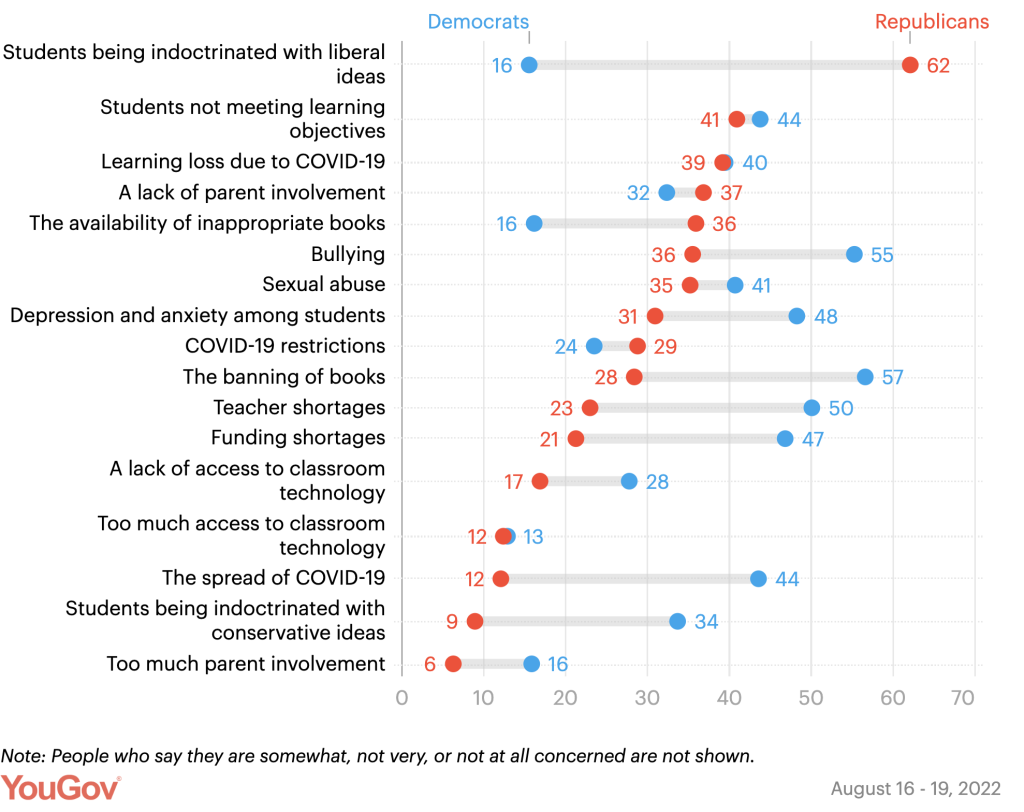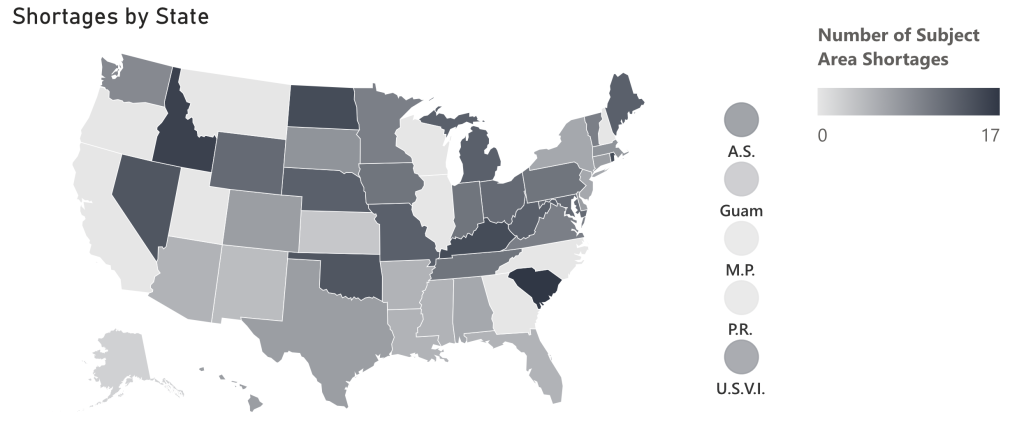As schools start their fall semester, teacher shortages are plaguing districts across the country. Schools are brainstorming ideas for how to retain those teachers who haven’t left yet and recruit more new teachers. But in spite of these troubles, a lot of voters don’t seem to think this is much of a problem, and that is especially true for republicans.

YouGov ran a survey asking questions about the level of concern that people had around the problems facing public schools and broke down the results by political affiliation. While many topics showed similar levels of concern like learning loss or the restrictions put in place because of COVID-19, some areas showed stark differences. “Students being indoctrinated with liberal ideas” and that is the only topic which had more than 50% of republicans being very concerned, whereas “the banning of books” topped the democrats’ list.
But while school administrators are trying to manage the teacher shortage, 50% of democrats say they are “very concerned” and only 23% of republicans report the same level of concern.
If we take a look at the data dashboard made by the National Conference of State Legislatures based on data provided by the federal government, we can see that the areas with shortages don’t divide cleanly into red and blue states, but having a voting population that sees the issues around teacher shortages gives schools in California a lot more leverage to combat the issue.

And that can be leveraged into new kinds of tools, like the attempt by Jefferson High School District to build low cost housing for teachers on property owned by the district. In the bay area where housing prices are pushed up by both the general rising tide of property values, and by the amount of money which has migrated into tech from other areas of the economy over the last two years, a school district is looking to ensure that teachers will still have a place that is affordable and makes their commute manageable.
At the same time, teaching in red states is getting harder. States are banning books and censoring what teachers can say. Oklahoma put a teacher on leave for informing kids that it is possible to access almost any book from the Brooklyn Public Library’s Books Unbanned site.
Without public interest in a topic like this, legislatures will see little reason to invest effort in making things better, which will only make teaching harder and harder for teachers who aren’t getting support.
More Stories
Tutoring as a part of teaching / Everything comes back to money
One of the difficult things with education is our reliance on a “one size fits all” model. We have for...
Justin Reich on Learning Loss, Subtraction in Action, and a future with much more disrupted schooling
Justin Reich is an education and technology researcher and the director of MIT’s Teaching Systems Lab. He hosts a podcast...
Public K-12 Enrollment is falling and that is dangerous and exciting
A surprising result of COVID and the resulting school closures is that many parents, after struggling to figure out how...
Esports could help re-diversify a shrunken curriculum
Esports and schools feel like a pretty strange fit. Regular sports have always gone with schools, but adding esports still...
Review of “How to Raise Successful People” by Esther Wojcicki
This is an interesting book with the perspective of a unique person that ultimately falters because of the blind spots...
SIGGRAPH at 50
SIGGRAPH , the premier conference on computer graphics education, held its 50th event last week in Los Angeles. Back in...
